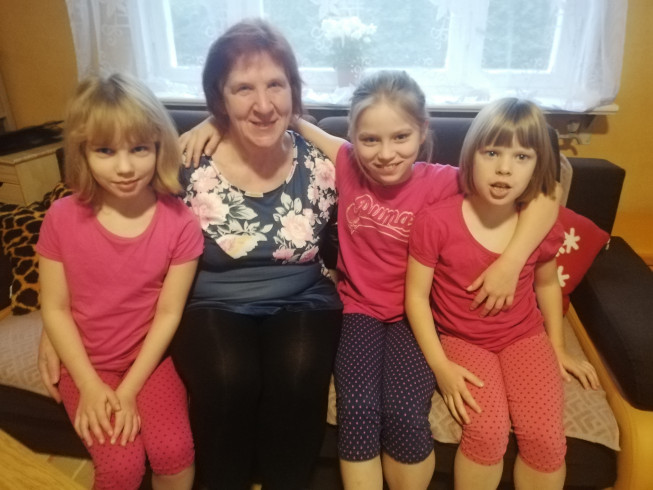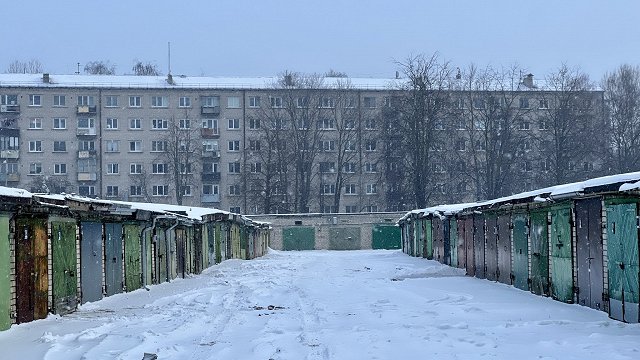With a charming medieval old town and luscious scenery along the Abava River Valley, Kandava has loads of physical beauty. And its people are grand too, showing a magnificent example of how to take care of the most vulnerable members of the community.
For over 20 years, thanks to a mighty effort by officials and local residents, every child from a broken family in this area 80 km west of Riga, as well as many more from other parts of Latvia, has been placed with foster families. And having cared for 30 youngsters, Dzintra and Jānis Ābols have been in the front line of this campaign of love.
“Our mission is to help kids when they need help and for however long they need it,” says Dzintra.
Due to alcoholism, parental mental illness and the associated evils of violence, sexual abuse and neglect, children sometimes have to be removed from their environment. And in Latvia, the institutions making these tough decisions are the Orphan's and Custody Courts.
For many years, the Kandava branch of this court was headed by Liena Reinberga. Convinced that sending kids to institutions is not the best answer, she set up a network of families to take them in.
The Ābols’ joined this movement by chance. Dzintra was a preschool teacher. One afternoon in 1997, nobody came to pick up a little girl. Liena asked Dzintra to give her a bed for the night, and this turned into a guardianship lasting several months until the child was adopted by a family elsewhere in Latvia.
Having raised six daughters of their own and with 13 grandchildren (plus one more on the way), the couple could be forgiven for wanting to just relax. But they found the experience deeply rewarding and began responding regularly to emergency appeals from Liena. In the mid-2000s, Latvian laws were amended to permit foster parenting, and they started caring for children for longer periods.
Some of the cases are truly heartbreaking. A few years ago, they took in a newborn baby weighing just 1 kg and suspected of having HIV and hepatitis C. Dzintra worked tirelessly to help her develop, and at 2.5 years she can now walk and talk and has been adopted by another family.
In July this year, they received a 7-month-old girl whose mother was recovering from alcoholism in hospital. In that case, custody was eventually restored for the parent, but unfortunately, most children end up being adopted.
Dzintra and Jānis currently have five foster children, including a 15-year-old girl who has been with them since she was an infant. Jānis is a retired electrician, and Dzintra views foster parenting as her full-time job. From the municipality, she receives 215 euros a month for each child aged up to 7 years, and 265 euros for each one aged seven to 18. The national government pays 171 euros per child, and an extra 50 euros for each additional child, up to a maximum of three children. So, for two of those under her care, “I am providing charity to the state,” she says.
Lifelong learning
Having raised their own large brood, the couple doesn’t want to adopt children. But as foster parents, it takes a strong person to eventually let go.
“Some families find it very difficult to say goodbye, but you have to let the children follow the path that a higher power has set out for them,” says Dzintra. “They’re not our property - maybe they have to learn a few lessons from us, then move on elsewhere.”
The shift to remote education during the pandemic has been a challenge for many families. But Dzintra has more headaches than most, juggling lessons for five kids attending three different schools. She is critical of the government’s lockdown policies and their lack of consideration of the social costs.
Still, the couple gives their foster children the best they can. The youngsters play sports, participate in music competitions and have won prizes for poetry reading.
At present, there are around 100 children in foster families in Kandava. The municipality has set up a support centre, which provides training and counselling for the 60 participating families. Dzintra says they are a tight-knit bunch who also support each other. And she serves as a mentor to guardians, foster parents and adoptive families all over Latvia, getting calls at all hours of the night from people seeking her advice.
This feature was originally published on the website of the Latvian Institute and is reproduced here with permission.






























